Democracy Day: A week in protests
- Published
What does democracy look like in 2015, and what part do protests play when people try to stand up for their rights?
On 20 January, the BBC is hosting a special Democracy Day, marking the anniversary of the 750th anniversary of the first Parliament of elected representatives at Westminster and examining the concept of democracy generally.
As part of this, we have been examining the nature and scale of protests happening around the world every day.
You have been sharing the demonstrations you've witnessed and have been taking part in during the week leading up to the BBC's Democracy Day.
Continue to take part in the global conversation by using the hashtag #BBCDemocracyDay, external.
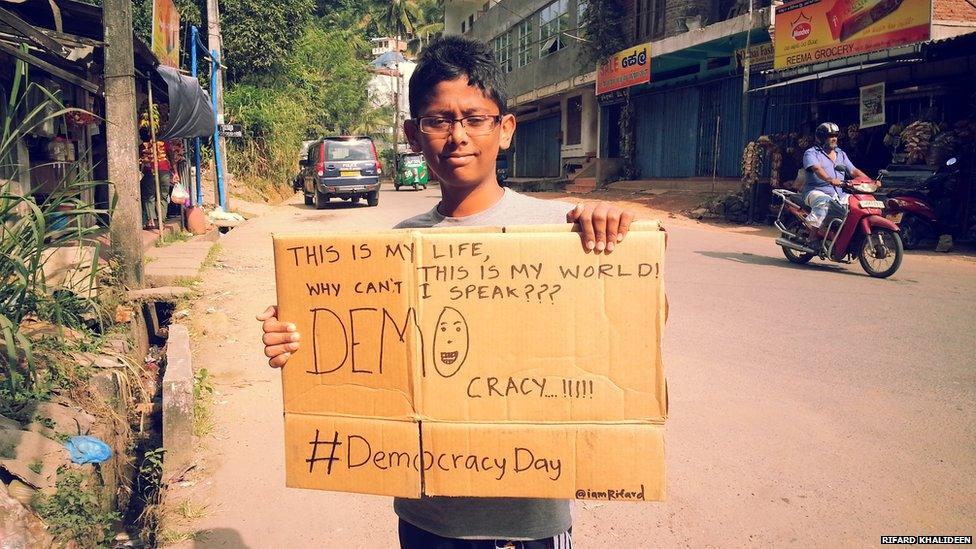
Rifard Khalideen took this photo of his cousin Muhammad on 19 January in his home town of Akurana, in Kandy, Sri Lanka. He says: "We need democracy wherever we are. "We are lacking freedom of speech in this part of the world." However, some restrictions on the press have recently been removed by the government.
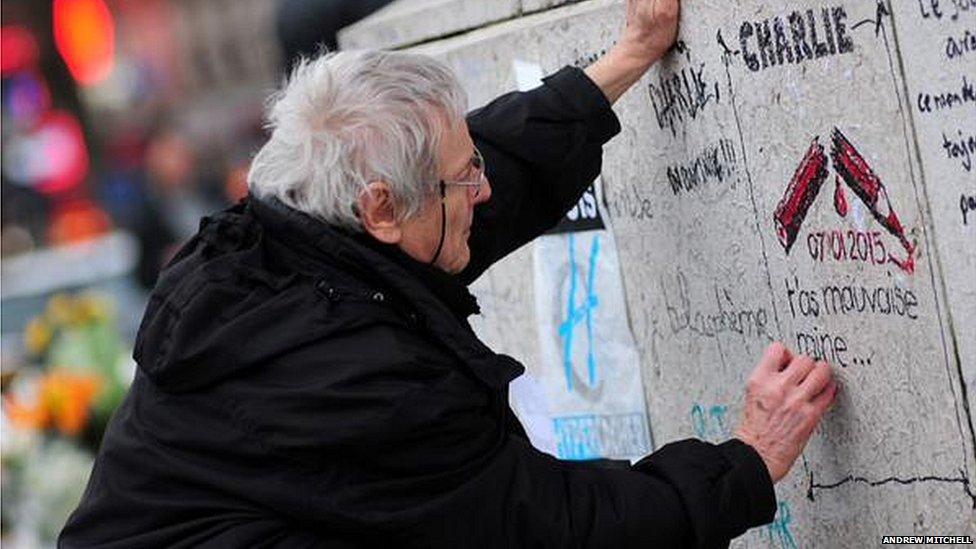
France has been slowly coming to terms with three days of attacks by Islamist gunmen. The killings have sparked heated debates, not just in France, but across Europe, about whether there is a limit to free speech and how far some minorities share in the democratic ideals of open societies.
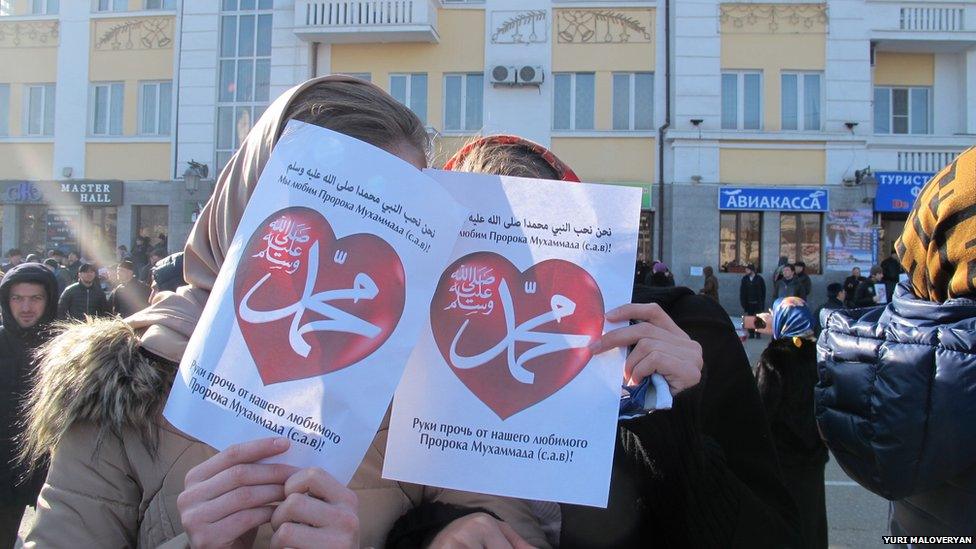
Tens of thousands of people took part in state-sponsored protest in Chechnya, against the publication of cartoons of the Prophet Muhammad, as this image by BBC reporter Yuri Maloveryan shows. The protests - mirrored in other parts of the world - illustrate the power of social media to unite people in far-flung places in a common cause. These protesters hold up placards saying: "Hands off our beloved Prophet Muhammad (peace be upon him)!"
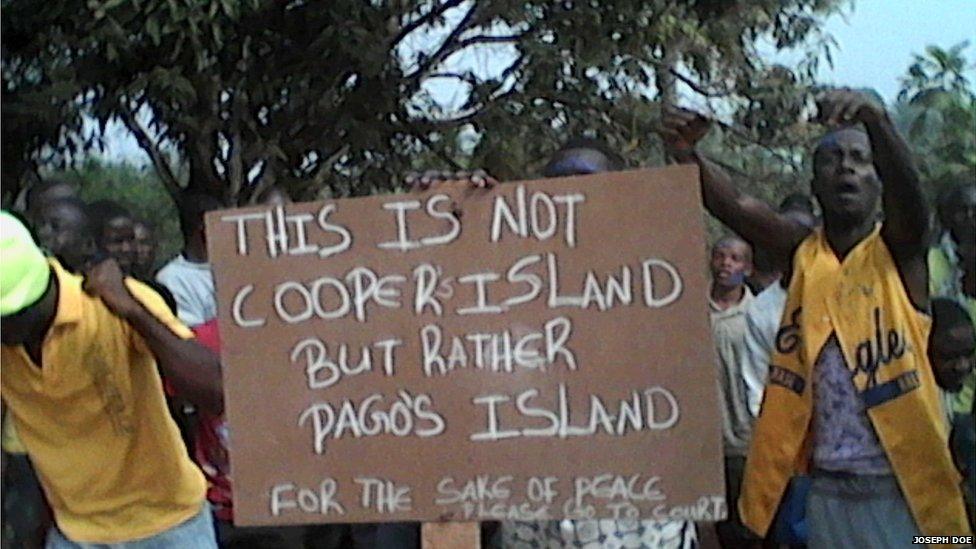
Joseph Doe took this picture of protesters on Pagos Island, Liberia, on 13 January. They were demonstrating against what they call an illegal land survey on ground they consider their own. In the developing world, disputes over access and ownership of land are frequent.
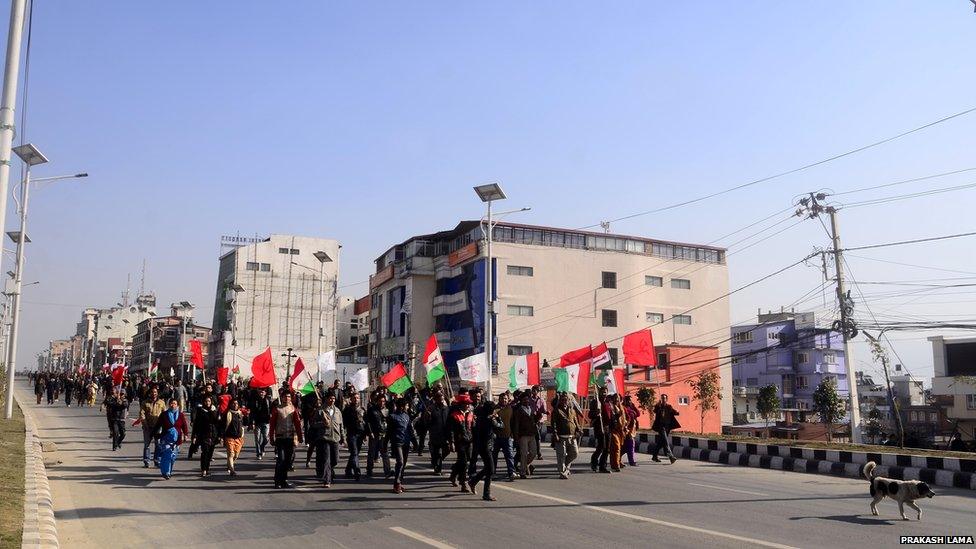
A general strike was called in Kathmandu, Nepal, on 13 January by a coalition led by the United Communist Party of Nepal Maoists. In Baneshwor, Kathmandu, no vehicles were allowed to operate, and shops, educational institutions and industries were closed. So people took to the streets. Photo taken by Prakash Lama.
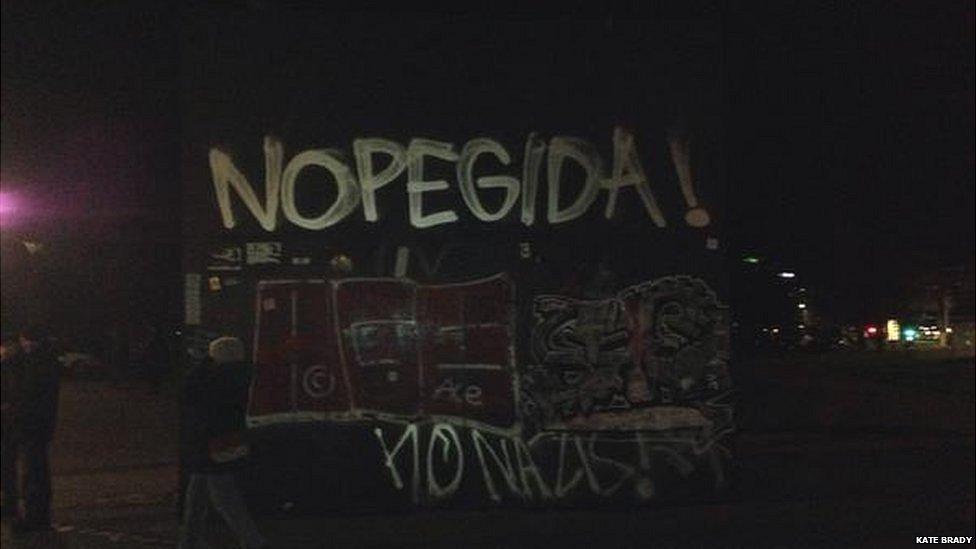
Pegida is a movement that aims to limit immigration to Germany, holding regular rallies. In turn, thousands have been attending anti-Pegida protests such as this one in Dresden on 12 January. Graffiti has appeared across the city, including this sent in by Kate Brady. Both movements say they have legitimate concerns and hope their vocal protests will persuade politicians to take action.
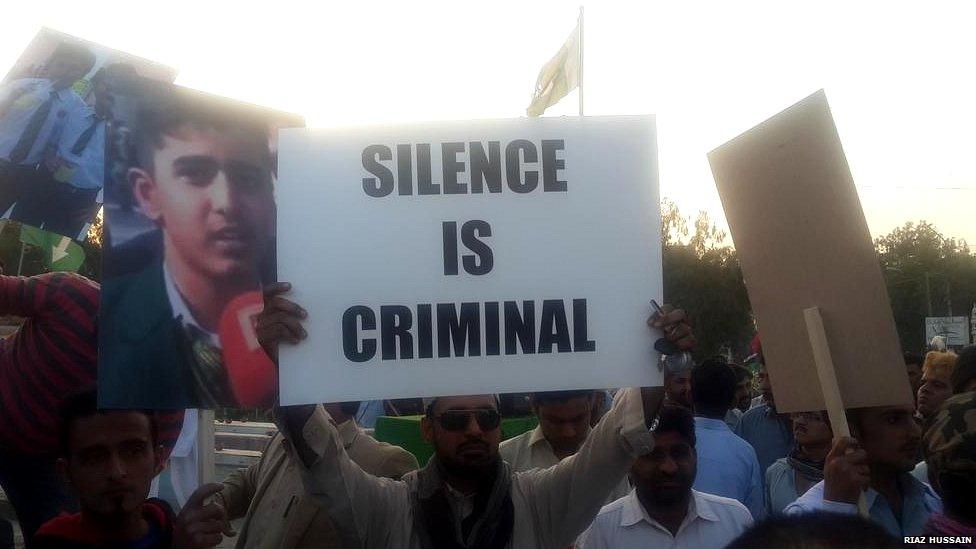
The Peshawar Army School attack, which left 141 people - mostly children - dead, is remembered here in Karachi, Pakistan on 16 January. Pakistan has witnessed scores of mass protests in recent years, as the public tries to influence what can sometimes be a chaotic political establishment.
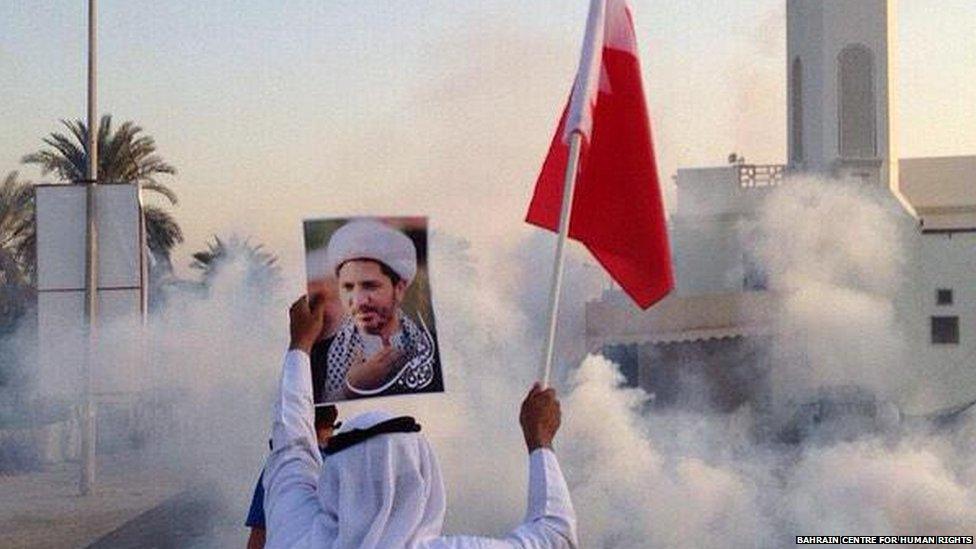
There is a deep split in Bahrain between the Sunni Muslim ruling minority and the Shia Muslim majority, who say they are discriminated against. Here, protesters gather on the streets of Bilad Alaqadeem village, demanding the release of Sheikh Ali Salman. The opposition leader was arrested after a day of questioning at the interior ministry.
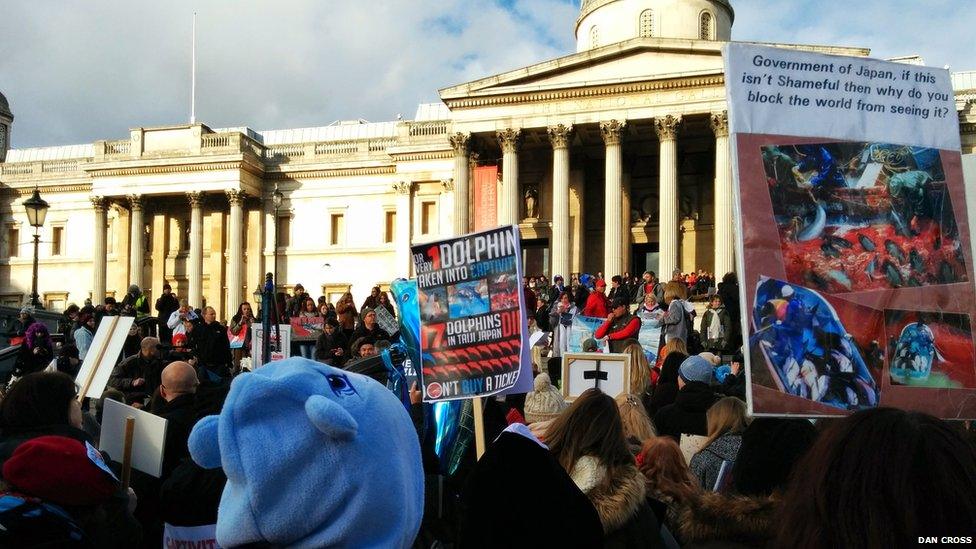
The Japanese practice of killing dolphins for their meat has provoked condemnation from animal rights activists. Dan Cross took this photo on 17 January in London's Trafalgar Square - the placards use graphic pictures of the dolphins being killed to make their point. Yet with social media providing easy access to all kinds of graphic images, are we becoming immune to their impact?
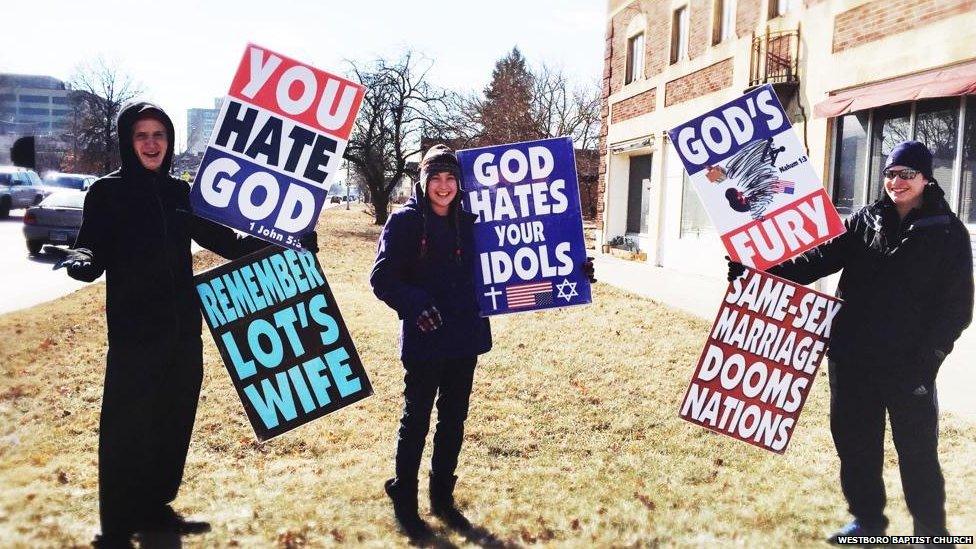
Members of the Westboro Church mount a protest
The Westboro Baptist Church in the United States has a reputation for controversial picketing, for example, of the funerals of US soldiers. The Church is small and largely centred around one family, but has garnered a disproportionately large profile. Its message is one of Old Testament-style sexual morality. This protest took place on 14 January.
Thank you for all of your contributions. The debate continues and we want you to continue to remain involved, external.
Email yourpics@bbc.co.uk, external, upload them here, external, or tweet @BBC_HaveYourSay, external.
Production: John McManus, external, Sherie Ryder, Dhruti Shah, Dilnawaz Pasha
Read our terms and conditions.